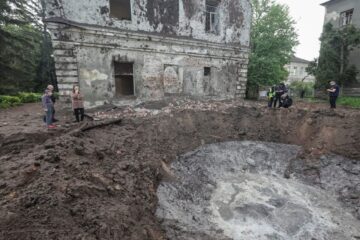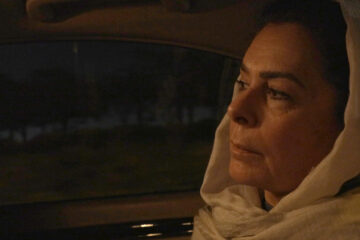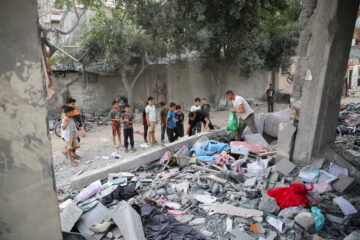Saudi-led warplanes pound Yemen rebels after pipeline attack
Saudi-led coalition warplanes struck Yemeni rebel targets, including in the capital Sanaa, on Thursday two days after the insurgents claimed drone strikes that shut a key oil pipeline in the neighbouring kingdom.
The new bombardment came after the UN envoy, who has been spearheading efforts to end more than four years of conflict in the Arab world\’s poorest country, warned it still faced the threat of plunging into all-out war.
The Saudi-led coalition, which has been battling the Huthi rebels since March 2015, confirmed that its warplanes were carrying out multiple strikes following twin rebel drone attacks on Saudi Arabia\’s main east-west pipeline on Tuesday.
"We have begun to launch air strikes targeting sites operated by the Huthi militia, including in Sanaa," a coalition official, who declined to be identified, told AFP.
One witness in the rebel-held capital told AFP he heard a loud explosion in the city centre.
The rebels\’ Al-Masirah television reported six strikes on the Arhab district of Sanaa province, followed by further strikes, including at least one in Sanaa itself.
A second witness told AFP that the raids began around 8 am (0500 GMT) while many Yemenis were asleep awaiting the end at sunset of the daytime fast observed by Muslims during the holy month of Ramadan.
"There were many strikes," he added.
The rebels said their Tuesday attack on the Saudi pipeline was a response to "crimes" committed by Riyadh during its bloody air war in Yemen, that has been criticised repeatedly by the United Nations and human rights groups.
The pipeline, which can carry five million barrels of crude per day, provides a strategic alternative route for Saudi exports if the shipping lane from the Gulf through the Strait of Hormuz is closed.
Iran, which Arab Gulf states accuse of supporting the Yemeni rebels, has repeatedly threatened to close the vital conduit for global oil supplies in case of a military confrontation with the United States.
– \’Retaliate hard\’ –
The Saudi cabinet called on Wednesday for "confronting terrorist entities which carry out such sabotage acts, including the Iran-backed Huthi militias in Yemen."
Key ally the United Arab Emirates echoed the call.
"We will retaliate and we will retaliate hard when we see Huthis hitting civilian targets like what happened in Saudi Arabia," the UAE minister of state for foreign affairs, Anwar Gargash, said on Wednesday.
Saudi Arabia and its allies intervened in Yemen when President Abedrabbo Mansour Hadi fled into Saudi exile as the rebels closed in on his last refuge in Yemen\’s second city Aden after sweeping through most of the rest of the country.
The intervention has retaken much of the south but the capital and most of the populous central highlands remain in rebel hands.
A grinding war of attrition has since gripped the country with third city Taez and the vital Red Sea aid port of Hodeida turned into battlegrounds.
In December, UN mediators brokered hard-won truce deals for both cities during talks in Sweden but the hoped for momentum for talks on a comprehensive peace has failed to materialise.
On Tuesday, UN observers confirmed that rebel fighters had pulled out of Hodeida port and two other Red Sea terminals, unilaterally carrying out a key redeployment that was supposed to follow the December ceasefire.
– \’Crossroads\’ –
UN envoy Martin Griffiths welcomed the pullback, but warned the Security Council on Wednesday that the risks of a slide into all-out war remained high.
"Despite the significance of the last few days, Yemen remains at the crossroads between war and peace," he said.
"There are signs of hope," he added, but there are also "alarming signs" of war.
Griffiths nonetheless hailed "a new beginning in Hodeida," where rebel fighters handed control of the port to coastguards, saying that "change is now a reality."
Hodeida is the main entry point for the bulk of Yemen\’s imports and humanitarian aid, providing a lifeline to millions of people who are on the brink of famine.
More than four years of conflict has triggered what the UN describes as the world\’s worst humanitarian crisis, with 24.1 million — more than two-thirds of the population — in need of aid.
The head of UNICEF, the UN children\’s agency, said that while a ceasefire was largely holding in Hodeida, fighting was raging "across 30 active conflict zones — home to nearly 1.2 million children."
"We are at a tipping point. If the war continues any longer, the country may move past the point of no return," Henrietta Fore told the Security Council.
"Hospitals, clinics and water systems are in ruins — with half of the country\’s hospitals and clinics destroyed."
SOURCE: AFP
[do_widget_area inner_adsbar]









